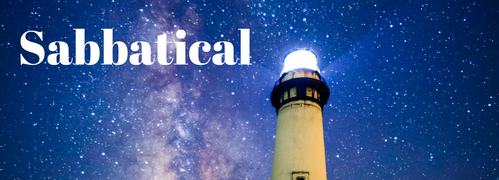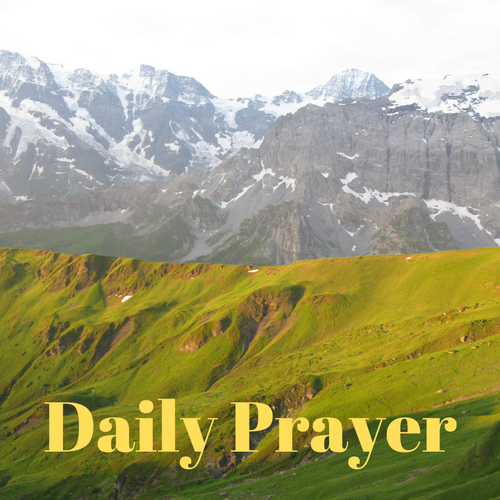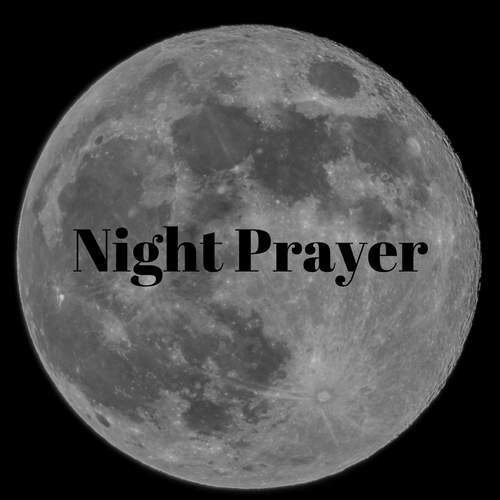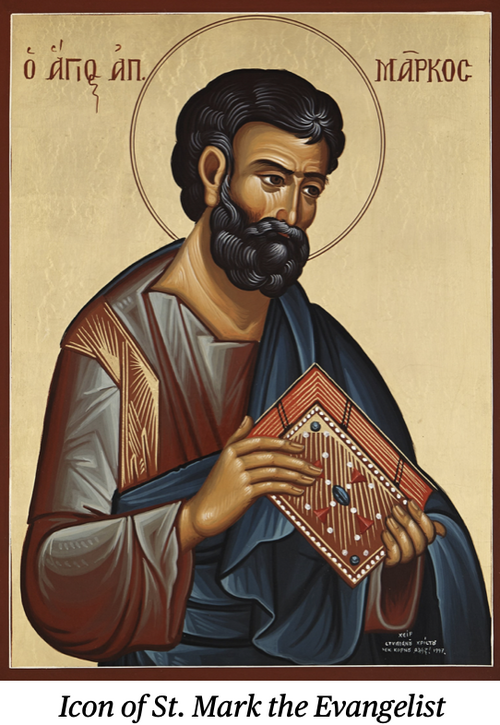

Daily Primer — June 14, Venice — Italy
Each day you will be given:
A Florilegium entry
A Daily Prayer
and a Night Prayer.
A Florilegium entry
A Daily Prayer
and a Night Prayer.

Unless an act or an occupation is suffused with meaning, constantly and indivisibly meaningful, it is meaningless. It is not possible to work at meaningless work, and then go home or to church or to a museum and experience meaning, as one would recharge a battery.
=============================
Solitude is the place of the great struggle and the great encounter—the struggle against the compulsions of the false self, and the encounter with the loving God who offers himself as the substance of the new self.
This might sound rather forbidding. It might even evoke images of medieval ascetical pursuits from which Luther and Calvin have happily saved us. But once we have given these fantasies their due and let them wander off, we will see that we are dealing here with that holy place where ministry and spirituality embrace each other. It is the place called solitude.
In order to understand the meaning of solitude, we must first unmask the ways in which the idea of solitude has been distorted by our world. We say to each other that we need some solitude in our lives. What we really are thinking of, however, is a time and a place for ourselves in which we are not bothered by other people, can think our own thoughts, express our own complaints, and do our own thing, whatever it may be. For us, solitude most often means privacy. We have come to the dubious conviction that we all have a right to privacy. Solitude thus becomes like a spiritual property for which we can compete on the free market of spiritual goods. But there is more. We also think of solitude as a station where we can recharge our batteries, or as the corner of the boxing ring where our wounds are oiled, our muscles massaged, and our courage restored by fitting slogans. In short, we think of solitude as a place where we gather new strength to continue the ongoing competition in life.
But that is not the solitude of St. John the Baptist, of St. Anthony or St. Benedict, of Charles de Foucauld or the brothers of Taizé. For them solitude is not a private therapeutic place. Rather, it is the place of conversion, the place where the old self dies and the new self is born, the place where the emergence of the new man and the new woman occurs.
How can we gain a clearer understanding of this transforming solitude? Let me try to describe in more detail the struggle as well as the encounter that takes place in this solitude.
In solitude I get rid of my scaffolding: no friends to talk with, no telephone calls to make, no meetings to attend, no music to entertain, no books to distract, just me—naked, vulnerable, weak, sinful, deprived, broken—nothing. It is this nothingness that I have to face in my solitude, a nothingness so dreadful that everything in me wants to run to my friends, my work, and my distractions so that I can forget my nothingness and make myself believe that I am worth something. But that is not all. As soon as I decide to stay in my solitude, confusing ideas, disturbing images, wild fantasies, and weird associations jump about in my mind like monkeys in a banana tree. Anger and greed begin to show their ugly faces. I give long, hostile speeches to my enemies and dream lustful dreams in which I am wealthy, influential, and very attractive—or poor, ugly, and in need of immediate consolation. Thus I try again to run from the dark abyss of my nothingness and restore my false self in all its vainglory.
The task is to persevere in my solitude, to stay in my cell until all my seductive visitors get tired of pounding on my door and leave me alone. The “Isenheim Altar” painted by Grünewald shows with frightening realism the ugly faces of the many demons who tempted Anthony in his solitude. The struggle is real because the danger is real. It is the danger of living the whole of our life as one long defense against the reality of our condition, one restless effort to convince ourselves of our virtuousness. Yet Jesus “did not come to call the virtuous, but sinners” (Matthew 9: 13).
That is the struggle. It is the struggle to die to the false self. But this struggle is far, far beyond our own strength. Anyone who wants to fight his demons with his own weapons is a fool. The wisdom of the desert is that the confrontation with our own frightening nothingness forces us to surrender ourselves totally and unconditionally to the Lord Jesus Christ. Alone, we cannot face “the mystery of iniquity” with impunity. Only Christ can overcome the powers of evil. Only in and through him can we survive the trials of our solitude. This is beautifully illustrated by Abba Elias, who said: “An old man was living in a temple and the demons came to say to him, ‘Leave this place which belongs to us,’ and the old man said, ‘No place belongs to you.’ Then they began to scatter his palm leaves about, one by one, and the old man went on gathering them together with persistence. A little later the devil took his hand and pulled him to the door. When the old man reached the door, he seized the lintel with the other hand crying out, ‘Jesus, save me.’ Immediately the devil fled away. Then the old man began to weep. Then the Lord said to him, ‘Why are you weeping?’ and the old man said, ‘Because the devils have dared to seize a man and treat him like this.’ The Lord said to him, ‘You had been careless. As soon as you turned to me again, you see I was beside you.’”
This story shows that only in the context of the great encounter with Jesus Christ himself can a real authentic struggle take place. The encounter with Christ does not take place before, after, or beyond the struggle with our false self and its demons. No, it is precisely in the midst of this struggle that our Lord comes to us and says, as he said to the old man in the story: “As soon as you turned to me again, you see I was beside you.” We enter into solitude first of all to meet our Lord and to be with him and him alone. Our primary task in solitude, therefore, therefore, is not to pay undue attention to the many faces which assail us, but to keep the eyes of our mind and heart on him who is our divine savior. Only in the context of grace can we face our sin; only in the place of healing do we dare to show our wounds; only with a single-minded attention to Christ can we give up our clinging fears and face our own true nature. As we come to realize that it is not we who live, but Christ who lives in us, that he is our true self, we can slowly let our compulsions melt away and begin to experience the freedom of the children of God. And then we can look back with a smile and realize that we aren’t even angry or greedy any more.
=============================
Solitude is the place of the great struggle and the great encounter—the struggle against the compulsions of the false self, and the encounter with the loving God who offers himself as the substance of the new self.
This might sound rather forbidding. It might even evoke images of medieval ascetical pursuits from which Luther and Calvin have happily saved us. But once we have given these fantasies their due and let them wander off, we will see that we are dealing here with that holy place where ministry and spirituality embrace each other. It is the place called solitude.
In order to understand the meaning of solitude, we must first unmask the ways in which the idea of solitude has been distorted by our world. We say to each other that we need some solitude in our lives. What we really are thinking of, however, is a time and a place for ourselves in which we are not bothered by other people, can think our own thoughts, express our own complaints, and do our own thing, whatever it may be. For us, solitude most often means privacy. We have come to the dubious conviction that we all have a right to privacy. Solitude thus becomes like a spiritual property for which we can compete on the free market of spiritual goods. But there is more. We also think of solitude as a station where we can recharge our batteries, or as the corner of the boxing ring where our wounds are oiled, our muscles massaged, and our courage restored by fitting slogans. In short, we think of solitude as a place where we gather new strength to continue the ongoing competition in life.
But that is not the solitude of St. John the Baptist, of St. Anthony or St. Benedict, of Charles de Foucauld or the brothers of Taizé. For them solitude is not a private therapeutic place. Rather, it is the place of conversion, the place where the old self dies and the new self is born, the place where the emergence of the new man and the new woman occurs.
How can we gain a clearer understanding of this transforming solitude? Let me try to describe in more detail the struggle as well as the encounter that takes place in this solitude.
In solitude I get rid of my scaffolding: no friends to talk with, no telephone calls to make, no meetings to attend, no music to entertain, no books to distract, just me—naked, vulnerable, weak, sinful, deprived, broken—nothing. It is this nothingness that I have to face in my solitude, a nothingness so dreadful that everything in me wants to run to my friends, my work, and my distractions so that I can forget my nothingness and make myself believe that I am worth something. But that is not all. As soon as I decide to stay in my solitude, confusing ideas, disturbing images, wild fantasies, and weird associations jump about in my mind like monkeys in a banana tree. Anger and greed begin to show their ugly faces. I give long, hostile speeches to my enemies and dream lustful dreams in which I am wealthy, influential, and very attractive—or poor, ugly, and in need of immediate consolation. Thus I try again to run from the dark abyss of my nothingness and restore my false self in all its vainglory.
The task is to persevere in my solitude, to stay in my cell until all my seductive visitors get tired of pounding on my door and leave me alone. The “Isenheim Altar” painted by Grünewald shows with frightening realism the ugly faces of the many demons who tempted Anthony in his solitude. The struggle is real because the danger is real. It is the danger of living the whole of our life as one long defense against the reality of our condition, one restless effort to convince ourselves of our virtuousness. Yet Jesus “did not come to call the virtuous, but sinners” (Matthew 9: 13).
That is the struggle. It is the struggle to die to the false self. But this struggle is far, far beyond our own strength. Anyone who wants to fight his demons with his own weapons is a fool. The wisdom of the desert is that the confrontation with our own frightening nothingness forces us to surrender ourselves totally and unconditionally to the Lord Jesus Christ. Alone, we cannot face “the mystery of iniquity” with impunity. Only Christ can overcome the powers of evil. Only in and through him can we survive the trials of our solitude. This is beautifully illustrated by Abba Elias, who said: “An old man was living in a temple and the demons came to say to him, ‘Leave this place which belongs to us,’ and the old man said, ‘No place belongs to you.’ Then they began to scatter his palm leaves about, one by one, and the old man went on gathering them together with persistence. A little later the devil took his hand and pulled him to the door. When the old man reached the door, he seized the lintel with the other hand crying out, ‘Jesus, save me.’ Immediately the devil fled away. Then the old man began to weep. Then the Lord said to him, ‘Why are you weeping?’ and the old man said, ‘Because the devils have dared to seize a man and treat him like this.’ The Lord said to him, ‘You had been careless. As soon as you turned to me again, you see I was beside you.’”
This story shows that only in the context of the great encounter with Jesus Christ himself can a real authentic struggle take place. The encounter with Christ does not take place before, after, or beyond the struggle with our false self and its demons. No, it is precisely in the midst of this struggle that our Lord comes to us and says, as he said to the old man in the story: “As soon as you turned to me again, you see I was beside you.” We enter into solitude first of all to meet our Lord and to be with him and him alone. Our primary task in solitude, therefore, therefore, is not to pay undue attention to the many faces which assail us, but to keep the eyes of our mind and heart on him who is our divine savior. Only in the context of grace can we face our sin; only in the place of healing do we dare to show our wounds; only with a single-minded attention to Christ can we give up our clinging fears and face our own true nature. As we come to realize that it is not we who live, but Christ who lives in us, that he is our true self, we can slowly let our compulsions melt away and begin to experience the freedom of the children of God. And then we can look back with a smile and realize that we aren’t even angry or greedy any more.
Wendell Berry, A Continuous Harmony. (first paragraph)
then entry on solitude:
Nouwen, Henri J. M.. The Way of the Heart: The Spirituality of the Desert Fathers and Mothers (p. 7-9).
then entry on solitude:
Nouwen, Henri J. M.. The Way of the Heart: The Spirituality of the Desert Fathers and Mothers (p. 7-9).
Florilegium is the Medieval Latin word for bouquet, or more literally flowers (flos, flor-) which are gathered (legere). The word florilegium was used to refer to a compilation of writings, often religious or philosophical. These florilegium are literary flowers—beautiful words/prayers/thoughts I have gathered. During my sabbatical they will give me something to ponder each day. — PHL.

Lord God, “The eyes of all look to you, and you give them their food in due season. You open your hand, satisfying the desire of every living thing.” You possess all we need and give it freely to us. Help us to trust that the life you offer is the life worth having and give us courage to follow where you lead, even when the fleshpots of Egypt are beguiling. For our part we covenant to be your faithful people and to remember that when we are with you we are not lost, even when we are journeying in unfamiliar territories. In the name of the Holy One of Israel, who offers us an escape from the brickyards. Amen.
Psalm 145:15-16; Exodus 16:3. Liturgy of the Hours — PHL.

O Lord, support us all the day long
until the shadows lengthen and the evening comes,
and the busy world is hushed,
and the fever of life is over,
and our work is done.
Then in your mercy,
grant us a safe lodging,
and a holy rest, and peace at the last;
through Jesus Christ our Lord. Amen.
until the shadows lengthen and the evening comes,
and the busy world is hushed,
and the fever of life is over,
and our work is done.
Then in your mercy,
grant us a safe lodging,
and a holy rest, and peace at the last;
through Jesus Christ our Lord. Amen.
The Book of Common Worship - Daily Prayer, p. 18.
St. Mark the Evangelist
- Patron of Venice

